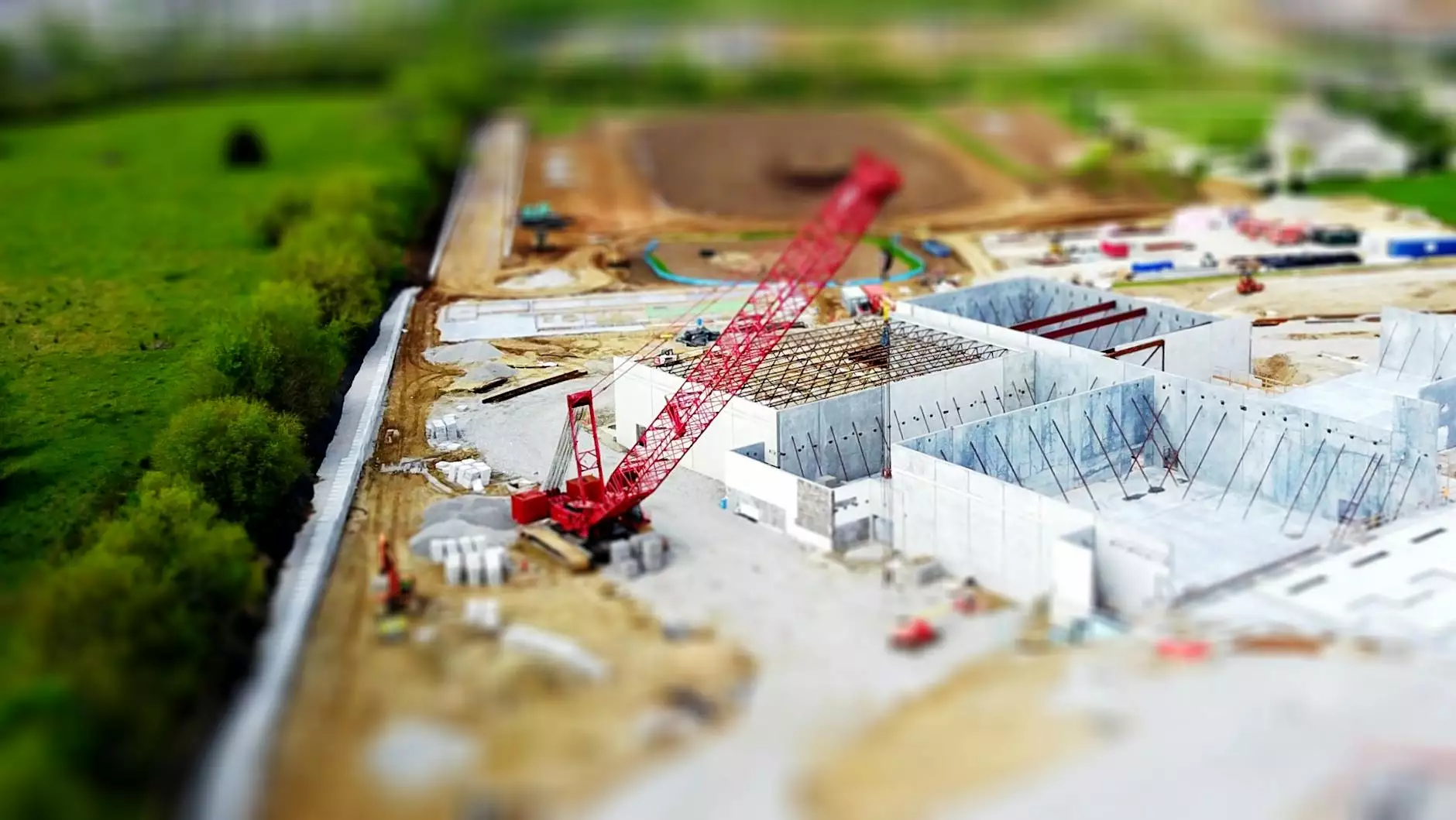Concrete Mixing Plants: Revolutionizing the Construction Landscape

Concrete mixing plants are at the forefront of the modern construction industry, playing a pivotal role in the efficiency, economy, and sustainability of building projects. As urbanization continues to expand globally, the demand for quality concrete rises, prompting manufacturers and contractors to seek advanced solutions. This article delves deeply into the functionality, benefits, and technological advancements of concrete mixing plants, backed by insights on reliable providers like PolygonMach.
The Role of Concrete Mixing Plants in Modern Construction
Concrete is a fundamental building material, essential for a wide range of construction projects. From residential buildings to expansive infrastructure, the need for efficient concrete production is undeniable. A concrete mixing plant significantly streamlines this process, providing various benefits:
- Consistency in Quality: Concrete mixing plants ensure that each batch of concrete meets the precise specifications required for structural integrity.
- Enhanced Efficiency: Automated systems in modern plants accelerate the mixing process, allowing for quicker project turnaround times.
- Cost-Effectiveness: Bulk production of concrete can substantially reduce costs in large projects, decreasing the overall project expenditure.
- Sustainability: Many contemporary plants incorporate technologies aimed at reducing waste and reusing materials, contributing to eco-friendly construction practices.
Understanding Concrete Mixing Plants
A concrete mixing plant is a facility that combines various ingredients to produce concrete, including aggregates, cement, water, and additives. The operational mechanism can vary significantly, with major types featuring different configurations:
1. Batch Mixing Plants
Batch mixing plants produce concrete in individual batches. This form allows for flexibility, enabling the operator to create custom mixtures for specific project needs. Notable features include:
- Ability to change mixtures easily for different projects.
- Consistent quality as specific quantities are mixed for each batch.
- Ideal for smaller projects or varied requirements.
2. Continuous Mixing Plants
Unlike batch plants, continuous mixing plants offer a steady stream of concrete. This type is beneficial for large-scale operations where high volumes are needed, featuring:
- Higher efficiency due to non-stop production.
- Lower labor requirements for continuous operation.
- Better control over material proportioning and additives.
3. Mobile Concrete Mixing Plants
Mobile concrete mixing plants can be easily transported to various job sites, making them ideal for projects that require mobility and fast setup. Advantages include:
- Expedited setup and breakdown.
- Flexibility to serve multiple locations.
- Perfect for remote or temporary installations.
Technological Advances in Concrete Mixing Plants
The landscape of concrete mixing technology is ever-evolving. Significant innovations have enhanced the capabilities and functionalities of concrete mixing plants. Below are key advancements:
Automation and IoT Integration
Automation is transforming how concrete is mixed and managed. Many modern plants utilize IoT technology for:
- Real-time monitoring: Operators can track the mixing process, ingredient use, and quality outcomes from remote locations.
- Predictive maintenance: Sensors alert operators to potential equipment failures before they occur, reducing downtime.
- Data analytics: Comprehensive data usage ensures mixture quality and performance can be consistently analyzed and improved.
Advanced Material Handling
Efficient material handling systems are indispensable in a concrete mixing plant. Innovations such as automated silos and gravel transporters enhance:
- Safety: Reducing the need for manual handling minimizes workplace injuries.
- Speed: Automated conveyance systems significantly cut down aggregate transit times.
- Accuracy: Automated systems ensure precise measurement of materials, resulting in better mixture quality.
Recycling Capabilities
With sustainability becoming a crucial focal point in construction, many concrete mixing plants have integrated recycling systems for:
- Water recycling: Systems capturing and reusing water used in mixing can drastically reduce water consumption.
- Agglomerate reuse: Technology allowing for the reuse of leftover concrete significantly cuts waste.
- Environmentally friendly additives: Using sustainable materials contributes to greener concrete solutions.
Choosing the Right Concrete Mixing Plant Provider
Selecting a reliable concrete mixing plant provider is crucial for success in any construction project. Here are significant considerations:
Experience and Reputation
Look for companies with proven industry experience. Providers like PolygonMach are renowned for their reliability and quality in manufacturing sophisticated concrete mixing solutions. Check the following:
- Project portfolio showcasing a variety of successfully completed installations.
- Customer testimonials and case studies highlighting satisfaction and performance.
- Industry awards or certifications received for excellence in product and service delivery.
Technical Support and After-Sales Service
Strong technical support is essential for the seamless operation of your concrete mixing plant. Ensure your provider offers:
- Comprehensive installation and commissioning services.
- Accessible customer service for troubleshooting and inquiries.
- Regular maintenance and servicing options to prevent downtime.
Customization Options
Every construction project has unique requirements. A concrete mixing plant should offer customization features, including:
- Adaptable mixtures to meet specific project demands.
- Scalable solutions that can grow with project requirements.
- Integration of advanced features depending on technological advancements and construction needs.
The Impact of Concrete Mixing Plants on Sustainability
The construction industry is under increasing pressure to align with sustainability goals, and concrete mixing plants are pivotal in this transition. Their impact includes:
Reduction of Carbon Footprint
Innovative concrete plants are reducing emissions during production through:
- Using lower carbon cement formulations.
- Implementing energy-efficient machinery.
- Maximizing the use of recycled materials in concrete production.
Improving Community Aesthetics
Concrete mixing plants focused on sustainable practices often engage with local communities to improve:
- Noise control measures to limit impacts on surrounding areas.
- Land reclamation projects using produced concrete for improving local infrastructure.
- Transparency in operational practices to gain community trust.
Conclusion: Invest in the Future with Advanced Concrete Mixing Technologies
The construction landscape is rapidly changing, with the demand for high-quality concrete growing alongside advancements in technology. Investing in modern concrete mixing plants from reputable providers like PolygonMach is crucial for contractors aiming to enhance efficiency, reduce costs, and promote sustainability.
Concrete mixing plants are not merely facilities for production; they are integral components of the construction ecosystem. Their evolution reflects ongoing improvements in technology, sustainability, and operational efficiency, ultimately contributing to stronger, safer, and more sustainable structures around the world.



